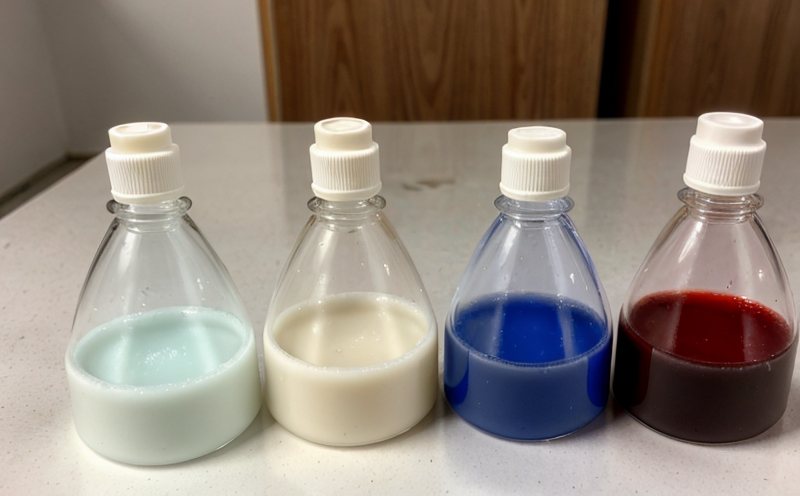Monomer and Oligomer Testing
In the realm of chemical testing, monomers and oligomers play a pivotal role in various industries, including polymers, adhesives, pharmaceuticals, and coatings. Monomers are building blocks used to form larger molecules known as polymers through polymerization processes. Oligomers are similar but consist of fewer repeating units than polymers. The testing of these compounds is essential for ensuring product quality, safety, and compliance with regulatory standards.
The importance of monomer and oligomer testing lies in their potential to influence the properties of the final products they contribute to. For instance, in polymer synthesis, controlling the purity and composition of monomers can lead to polymers with desired mechanical strength, flexibility, or chemical resistance. In pharmaceuticals, ensuring that the raw materials are free from impurities is crucial for drug safety.
Regulatory bodies such as the United States Environmental Protection Agency (EPA), European Chemicals Agency (ECHA), and others have set stringent guidelines regarding the testing of monomers and oligomers. Compliance with these standards ensures that products meet environmental, health, and safety requirements. For example, the EPA's Toxic Substances Control Act (TSCA) mandates rigorous testing for chemicals used in various industries.
Testing methods include spectroscopy, chromatography, and gravimetric analysis to quantify monomers and oligomers accurately. High-performance liquid chromatography (HPLC), gas chromatography (GC), and nuclear magnetic resonance (NMR) are commonly employed techniques. These tests help identify the presence of unwanted by-products or impurities that could affect product performance.
The testing process typically involves several steps: sample preparation, which may include dissolution in solvents or dispersion in carriers; analysis using appropriate instrumentation; and interpretation of results to ensure compliance with specified standards. The acceptance criteria are based on international standards like ISO 17025 for laboratory accreditation and ASTM D6474 for monomer characterization.
- Environmental impact: Monomers and oligomers, if improperly managed, can contribute to pollution of air, water, and soil. Proper testing ensures their responsible use and disposal.
- Safety in production: Ensuring the purity of raw materials helps prevent accidents during manufacturing processes.
- Product integrity: Accurate testing guarantees that products meet specified quality standards, enhancing customer satisfaction and trust.
Why It Matters
The significance of monomer and oligomer testing extends beyond mere compliance. These compounds are fundamental in the development and production of a wide range of materials and products, each with its unique set of requirements and challenges.
In the polymer industry, for instance, the quality of polymers directly impacts their performance in various applications such as automotive parts, medical devices, and electronics. Ensuring that monomers used in these processes are free from contaminants and have consistent properties is critical to achieving reliable and high-quality products.
For pharmaceutical manufacturers, the purity of raw materials can influence drug efficacy and safety. Even trace amounts of impurities can lead to significant deviations in drug behavior, affecting its stability and shelf life. Therefore, thorough testing helps in maintaining product integrity and patient safety.
The importance of monomer and oligomer testing is also highlighted by the increasing demand for sustainable practices in manufacturing. By identifying and minimizing the use of harmful substances, companies can contribute to environmental conservation efforts. This aligns with global initiatives aimed at reducing waste and promoting eco-friendly production methods.
Benefits
The benefits of monomer and oligomer testing are multifaceted, offering numerous advantages across different sectors:
- Enhanced Product Quality: Testing ensures that the raw materials used in production meet strict quality standards, leading to improved product performance.
- Regulatory Compliance: By adhering to international standards and guidelines, companies can avoid legal penalties and ensure smooth operations.
- Safety Assurance: Identifying potential hazards early through testing helps protect both workers and end-users from risks associated with impurities or contaminants.
- Eco-Friendly Production: Responsible use of monomers and oligomers contributes to sustainable manufacturing practices, supporting environmental protection efforts.





